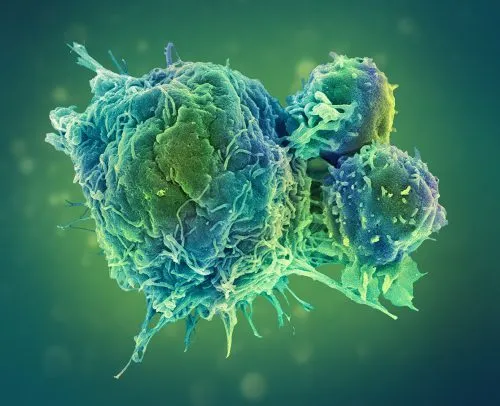Introduction to Hormonal therapy
Hormonal therapy, also called endocrine therapy, is an effective treatment option for certain hormone-sensitive cancers like breast cancer, prostate cancer, and uterine cancer. It works by lowering or blocking the levels of hormones like estrogen and testosterone that can fuel tumour growth. Hormonal therapy involves using medications containing hormones to treat various medical conditions resulting from hormone imbalances or deficiencies. This Hormonal Therapy is performed by the Medical oncologist in Bangalore. It's a crucial treatment method to restore hormonal balance within the body. This therapy comes in various forms, including hormone replacement therapy (HRT) and anti-androgen therapy, each serving different purposes.

Benefits of Hormonal Therapy
When used properly, hormonal therapy can offer several benefits:
- It is less toxic than chemotherapy or radiation therapy with generally milder side effects. Common side effects may include hot flashes, vaginal dryness, nausea, fatigue, joint pain, etc.
- Hormonal therapy slows or stops the growth of hormone-sensitive tumours by starving them of the hormones they need to grow. This can help extend survival.
- It is an adjuvant therapy and can reduce the risk of cancer recurrence when used after primary treatments like surgery or chemotherapy.
- Hormonal therapy tablets are easy to administer in pill form.
Risks and Side Effects
- Like other cancer treatments, hormonal therapy also comes with some risks:
- While generally milder than chemotherapy side effects, hormonal therapy does cause menopausal symptoms like hot flashes in both men and women.
- Long-term hormone therapy may lead to loss of bone density and increased fracture risk.
- There are increased cardiovascular and thromboembolic risks associated with certain hormonal agents.
- Not all tumours are hormone-sensitive, so hormonal therapy works better for some cancer types than others.
Applications of Hormonal Therapy
Some of the common applications of hormonal therapy include:
- Breast Cancer: Tamoxifen, aromatase inhibitors, ovarian suppression drugs
- Prostate Cancer: LHRH agonists, anti-androgens
- Uterine Cancer: Progestins
Hormonal therapy works best for early-stage cancers with hormone receptors that can respond to lowering hormone levels. Cancers can sometimes stop responding over time as they adapt to thrive with fewer hormones. You can get these specialities with experienced oncologists at HCG Hospital Bangalore.
Seeking Guidance from Oncology Specialists
The decision to begin hormonal therapy should always involve careful considerations of medical history, specific cancer details, lifestyle factors, and risk factors with guidance from oncologists. Those diagnosed with hormone-sensitive cancers in Bangalore have access to skilled medical oncologists well-versed in tailored therapy plans for the best chance of remission and positive outcomes.
In summary, under an expert medical oncologist's supervision, hormonal therapy is a proven beneficial treatment option for certain hormone-positive cancers. Like any cancer therapy, it comes with some side effects and risks that must be carefully weighed against potential benefits. Early-stage low-risk disease sees the best rewards with greatly improved prognoses from hormone-blocking strategies.
Cost of Hormonal Therapy
The cost of hormonal therapy can vary significantly based on several factors. Factors influencing the cost include the type of hormonal therapy, duration of treatment, the specific medications or procedures involved, and the healthcare provider or facility where the therapy is administered. Hormonal therapy costs can encompass the price of hormone medications, consultations with healthcare professionals, laboratory tests to monitor hormone levels, and any additional procedures or appointments required during the treatment period.
For instance, hormone replacement therapy (HRT) costs may involve expenses for hormone prescriptions, doctor's visits, and periodic blood tests to monitor hormone levels and adjust the treatment as needed. The cost can also vary between different forms of HRT, such as pills, patches, gels, or injections. Similarly, fertility treatments involving hormonal therapy for assisted reproduction techniques like in vitro fertilization (IVF) may include expenses for medications stimulating ovulation or regulating hormone levels, along with the costs of the IVF procedure itself and associated medical appointments and tests.
It's advisable for individuals considering hormonal therapy to consult with healthcare providers and insurance companies to understand the specific costs involved, potential insurance coverage, and available options to manage expenses related to hormonal therapy.
Conclusion
Ultimately, the decision to pursue hormonal therapy should be made in consultation with healthcare providers. Understanding the benefits, risks, costs, and available alternatives is crucial in making an informed choice tailored to individual health needs and considerations. Hormonal therapy, when administered under proper medical guidance and monitoring, can significantly improve well-being and address hormone-related health issues.
You can also read : Lung Cancer Surgery: Finding the Best Oncologist in Bangalore


No comments yet